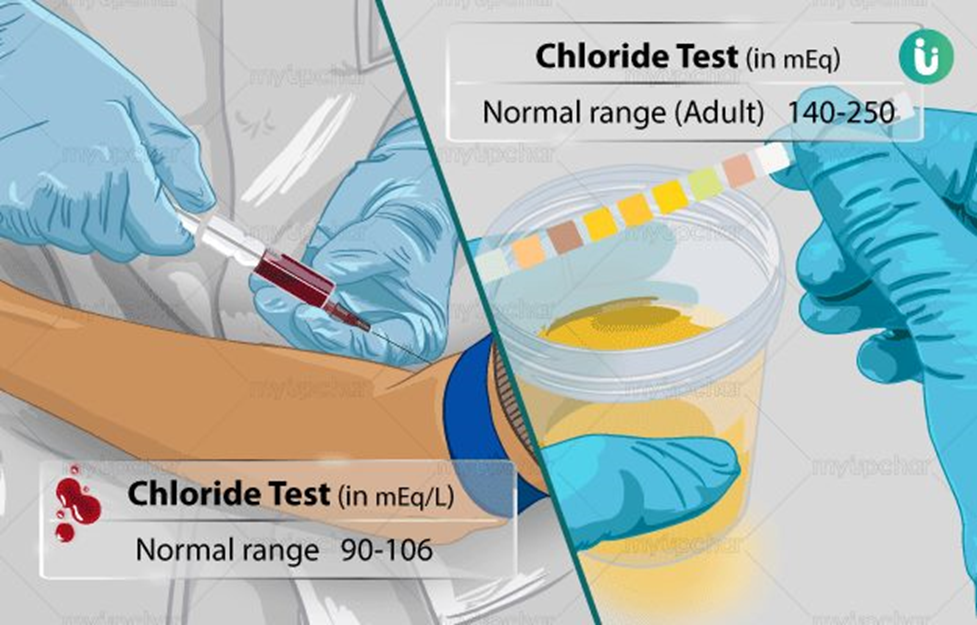Which may cause hyperkalemia?
Renal failure
Diarrhea
Blood transfusion
Diaphoresis
The Correct Answer is A
Choice A reason: Renal failure can cause hyperkalemia because the kidneys are unable to excrete excess potassium from the body. This can lead to high levels of potassium in the blood, which can affect the heart and muscles.
Choice B reason: Diarrhea can cause hypokalemia, not hyperkalemia, because it can lead to loss of potassium from the gastrointestinal tract. This can result in low levels of potassium in the blood, which can also affect the heart and muscles.
Choice C reason: Blood transfusion can cause hyperkalemia if the blood is old or hemolyzed, meaning that the red blood cells have broken down and released potassium into the plasma. This can increase the potassium levels in the recipient's blood.
Choice D reason: Diaphoresis, or sweating, can cause hypokalemia, not hyperkalemia, because it can lead to loss of potassium from the skin. This can also lower the potassium levels in the blood.
Nursing Test Bank
Naxlex Comprehensive Predictor Exams
Related Questions
Correct Answer is D
Explanation
Choice A reason: This is incorrect because metabolic alkalosis is characterized by a high pH and a high HCO3-. The patient's pH and HCO3- are both low, indicating acidosis, not alkalosis.
Choice B reason: This is incorrect because respiratory alkalosis is characterized by a high pH and a low PaCO2. The patient's pH is low and PaCO2 is normal, indicating a metabolic problem, not a respiratory one.
Choice C reason: This is incorrect because respiratory acidosis is characterized by a low pH and a high PaCO2. The patient's pH is low, but PaCO2 is normal, indicating a metabolic problem, not a respiratory one.
Choice D reason: This is correct because metabolic acidosis is characterized by a low pH and a low HCO3-. The patient's pH and HCO3- are both low, indicating a metabolic disorder. The condition is uncompensated because the PaCO2 is normal, meaning the respiratory system is not compensating for the metabolic acidosis.
Correct Answer is C
Explanation
Choice A reason: This is incorrect because 95-110 mg/dL is the normal range of serum phosphorus level in adults, not chloride. Phosphorus is an electrolyte that is involved in energy metabolism, acid-base balance, and bone formation.
Choice B reason: This is incorrect because 10-120 mEq/L is not a realistic range for any electrolyte level in the blood. The units of mEq/L indicate the concentration of ions, not the mass of the substance. The normal range of serum chloride level in adults is expressed in mEq/L, not mg/dL.
Choice C reason: This is correct because 96-106 mEq/L is the normal range of serum chloride level in adults. Chloride is an electrolyte that is important for fluid balance, acid-base balance, and nerve transmission.
Choice D reason: This is incorrect because 1.8-2.6 mEq/L is the normal range of serum magnesium level in adults, not chloride. Magnesium is an electrolyte that is important for muscle and nerve function, as well as enzyme activity.

Whether you are a student looking to ace your exams or a practicing nurse seeking to enhance your expertise , our nursing education contents will empower you with the confidence and competence to make a difference in the lives of patients and become a respected leader in the healthcare field.
Visit Naxlex, invest in your future and unlock endless possibilities with our unparalleled nursing education contents today
Report Wrong Answer on the Current Question
Do you disagree with the answer? If yes, what is your expected answer? Explain.
Kindly be descriptive with the issue you are facing.
